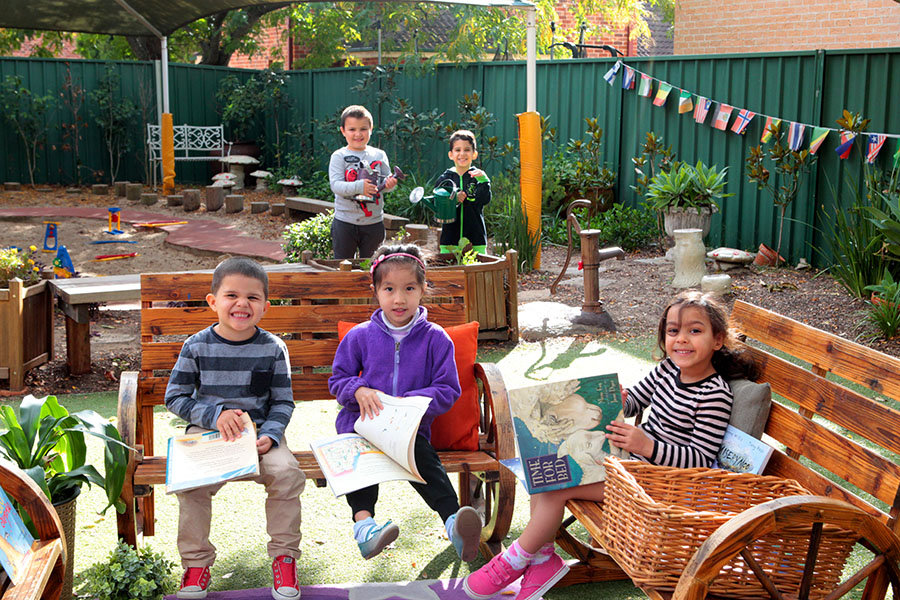
Joey’s Cottage Preschool is an educational early childhood service in Chipping Norton which offers a preschool program and exceptional child care. Families bring their children from far and wide and from local areas adjacent to Chipping Norton, Moorebank, Warick Farm and Liverpool.
Joey’s Cottage, a Childcare in Chipping Norton follows the guidelines of the NSW Department of Health under the early childhood sub- group called Munch and Move. The children enjoy a wide variety of nutritious foods every day. The Australian Guide to Healthy Eating plate is used to guide our amount and types of foods categorized into five categories. Children are taught to recognise ‘sometimes’ foods and to only eat them in small amounts.
The children grow herbs and vegetable in the garden. The produce is used in the preschool kitchen.
Munch and Move guidelines also provide Joey’s Cottage with programs on gross motor skills. Children are encouraged to have limited time on screens and to develop the skills needed to enjoy sports they will play in primary school and years to come. Our back yard has many areas of interest for the children to develop gross motor skills.

